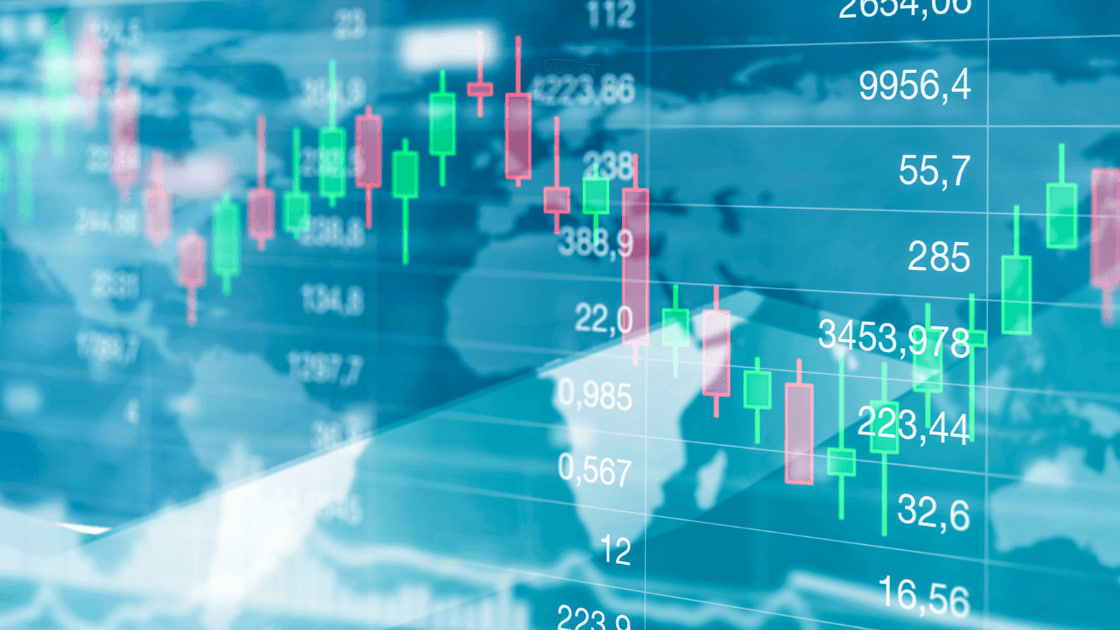European Stock Market Dip: A Deep Dive into the December 20th Downturn (Meta description: European stock market, DAX, FTSE, CAC40, STOXX50, market analysis, December 20th downturn, investment strategies)
Unraveling the Mystery: Why European Markets Took a Tumble on December 20th
Whoa! The European stock markets took a bit of a beating on December 20th, didn't they? A collective sigh swept across trading floors as the major indices – the German DAX30, the UK FTSE 100, the French CAC40, and the pan-European STOXX 50 – all experienced significant drops. This wasn't just a minor blip; we're talking substantial declines that left many investors scratching their heads. But fear not, intrepid reader! This isn't just another dry market report; we're going to delve deep into the specifics of this downturn, exploring the underlying causes, analyzing potential implications, and arming you with the knowledge you need to navigate the often-turbulent waters of European equities. We’ll dissect the data, examine potential contributing factors, and even offer some savvy investment strategies to consider in the wake of this market movement. Forget the jargon-filled reports – we're going straight to the heart of the matter, delivering clear, concise, and actionable insights based on years of experience in the financial trenches. Get ready to ditch the guesswork and embrace a deeper, more informed understanding of this significant market event. Prepare for a truly in-depth analysis, the kind that separates the seasoned investor from the novice. Let’s dive in!
European Stock Market Performance on December 20th
The day's performance paints a rather bleak picture. Significant losses across the board signal a broader issue at play, not just localized problems. Let's break down the numbers:
-
DAX30 (Germany): A hefty 1.39% drop. This suggests underlying concerns about the German economy, potentially related to energy prices or global economic slowdown.
-
FTSE 100 (UK): A 1.17% decline. While seemingly less dramatic than the DAX, this still indicates a negative market sentiment impacting even the relatively resilient UK market.
-
CAC40 (France): A 1.22% fall, mirroring the general downward trend seen across Europe. This highlights that the slump wasn't confined to a single nation but reflected a broader European concern.
-
STOXX 50 (Pan-European): The largest drop of the day, at 1.58%, clearly underscores the widespread negative sentiment affecting the entire European market. This index, encompassing the 50 largest companies in the Eurozone, serves as a powerful barometer of the region's overall economic health.
This wasn't a case of one bad apple spoiling the bunch; the coordinated dip signifies a larger, more systemic issue demanding closer scrutiny.
Potential Contributing Factors: Unpacking the Downturn
Several factors likely contributed to this market slump. It's rarely a single cause; it's usually a confluence of events. Here are some key suspects:
-
Global Economic Slowdown: The looming threat of a global recession continues to cast a long shadow over investor confidence. High inflation, rising interest rates, and supply chain disruptions are all contributing to this uncertainty.
-
Energy Crisis in Europe: The ongoing energy crisis, exacerbated by the war in Ukraine, continues to put significant pressure on European economies. High energy costs are impacting businesses and consumers alike, dampening economic growth.
-
Inflationary Pressures: Persistent high inflation erodes purchasing power and increases uncertainty about future economic prospects. This naturally leads to investors seeking safer havens for their capital.
-
Geopolitical Uncertainty: The war in Ukraine, along with ongoing tensions in other parts of the world, contributes to a climate of geopolitical instability that unnerves investors.
-
Interest Rate Hikes: Central banks across the globe are aggressively raising interest rates to combat inflation. While this is a necessary measure in the fight against inflation, it also carries the risk of slowing economic growth and potentially triggering a recession.
Navigating the Market Volatility: Strategies for Investors
The December 20th downturn highlights the inherent volatility of the stock market. However, this shouldn't necessarily be cause for panic. Instead, it's an opportunity to reassess your investment strategy and potentially take advantage of market dips.
Here are some strategies to consider:
-
Diversification: A well-diversified portfolio is crucial to mitigating risk. Don't put all your eggs in one basket; spread your investments across different asset classes and geographic regions.
-
Long-Term Perspective: Remember, the stock market fluctuates. Short-term drops are a normal part of the market cycle. A long-term investment strategy focusing on sustainable growth is key.
-
Value Investing: Market downturns often create opportunities to buy undervalued stocks. Thorough research and due diligence are crucial in identifying these opportunities.
-
Risk Management: Always have a clear understanding of your risk tolerance. Don't invest more than you're willing to lose. Consider setting stop-loss orders to limit potential losses.
The Impact of the December 20th Dip: A Wider Perspective
The dip wasn't isolated; its ripple effects extended throughout the European financial landscape. Businesses felt the pressure, consumer confidence wavered, and the overall economic outlook became somewhat clouded. The interconnectedness of global markets means that even seemingly localized events can have far-reaching consequences.
Frequently Asked Questions (FAQs)
Q1: Was the December 20th drop a one-off event, or is this a sign of more significant problems to come?
A1: While it's impossible to predict the future with certainty, the drop reflects underlying economic concerns. More volatility is likely, but whether this signals a larger market correction remains to be seen.
Q2: Should I panic and sell my European stocks?
A2: Panic selling is rarely a good strategy. If you have a long-term investment horizon, consider sticking to your plan. However, reassessing your risk tolerance and diversification is always prudent.
Q3: Are there any specific sectors that were hit harder than others?
A3: Energy and technology sectors are often particularly sensitive to economic downturns and interest rate hikes. But it's also worth noting that the impact can vary based on individual companies.
Q4: How can I protect my investments from future market fluctuations?
A4: Diversification, thorough research, and risk management are key. Consider hedging strategies, but always seek professional advice.
Q5: Is this a good time to buy European stocks?
A5: Market timing is notoriously difficult. However, the downturn might present opportunities for value investors who can identify strong companies trading at discounted prices.
Q6: Where can I find reliable information about European stock markets?
A6: Reputable financial news sources, analyst reports, and your financial advisor are excellent resources. Always be wary of biased or unsubstantiated information.
Conclusion: Riding the Waves of Market Volatility
The December 20th downturn in European stock markets served as a stark reminder of the inherent risks and volatility in the investment world. However, by understanding the underlying causes, employing sound investment strategies, and maintaining a long-term perspective, investors can navigate these turbulent waters more effectively. Remember, informed decisions are key to success in the dynamic world of finance. Stay informed, stay adaptable, and stay invested – but always with a clear understanding of your risk tolerance and a well-defined investment plan.



